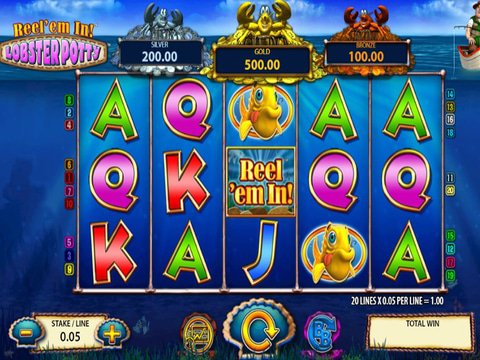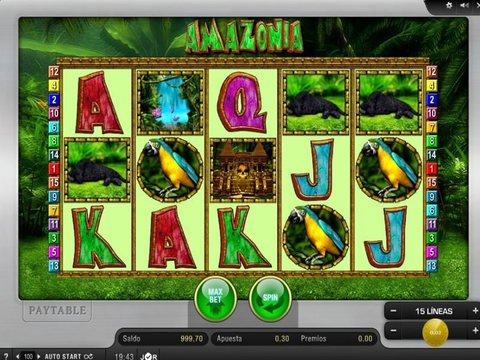Betway Echeck
Raging River Trading (Pty) Ltd (2011/134505/07) Powered by Betway South Africa, is licensed and regulated by the Western Cape Gambling and Racing Board. Bookmaker License Number: 10181496-007. No persons under the age of 18 years are permitted to gamble. Winners know when to stop. National Responsible Gambling Programme: 0800 006 008. Sports Betting Group Ghana Limited - 32 Castle Road, Adabraka, Accra Ghana. Licence Numbers: GCSB20D3476E and GCCA20B1131T. No persons under the age of 18 years are permitted to gamble.
Overview
eCheck, an established payment instrument combining the security, speed and processing efficiency of all-electronic transactions with the familiar and well-developed legal infrastructure and business processes associated with paper checks, is the first and only electronic payment mechanism chosen by the United States Treasury to make high-value payments over the public Internet.

See our Complete Guide to the Echeck
Echecks in 2020
Echecks, quite simply, are digital versions of the old paper check. This is NOT a new technology; the eCheck has been around for nearly two decades by now.
Table of Contents
As of 2020, eCheck is an established and highly utilized payment method online. Virtually every major payment gateway offers eCheck payment options in addition a raft of other payment services. As of 2020, paying by eCheck remains one of the most secure and CHEAPEST methods of making a payment directly form your bank account to another party (or to pay for goods or services).
You can typically send an eCheck from any sort of modern checking account, provided your bank offers the ability to do so online.
The Electronic Check (also known as the ‘eCheck’ or ‘e-check’):
- leverages the check payments system, a core competency of the banking industry.
- fits within current business practices, eliminating the need for expensive process re-engineering.
- works like a paper check does but in pure electronic form, with fewer manual steps.
- is designed to meet the needs of businesses and consumers in the 21st century, using state of the art security techniques.
- can be used by all bank customers who have checking accounts, including small and mid-size businesses which currently have little access to electronic payment systems.
- enhances existing bank accounts with new e-commerce features.
Let’s examine how eCheck works for the banking industry and the clients it serve. There are fundamental characteristics and differences between paper check, the eCheck and other Electronic Funds Transfer (EFT) transactions.
eChecks, in 2020, are an important instrument in transitioning businesses and consumers into the world of electronic commerce.
What is an eCheck
Simply put, an eCheck is the electronic version or representation of a paper check.
eChecks have the following features:
- contain the same information as paper checks contain
- are based on the same rich legal framework as paper checks
- can be linked with unlimited information and exchanged directly between parties
- can be used in any and all remote transactions where paper checks are used today
- enhance the functions and features provided by bank checking accounts
- expand on the usefulness of paper checks by providing value-added information
Fancy terminology aside, eChecks are simply a type of online payment where money is electronically withdrawn from the payer’s bank account (usually a checking account), transfered over the ACH network, then deposited into the seller’s (or receiver of) own bank account. For the payment to be initialized, it must be authorized specifically by the payer (via acceptance such as confirmation click or some other means (signed contract, etc).
How eChecks Work
eChecks work the same way a check does. The process works like this:
- the check writer “writes” the eCheck using one of many types of electronic devices and “gives” the eCheck to the payee electronically.
- the payee “deposits” the Electronic Check, receives credit, and the payee’s bank “clears” the eCheck to the paying bank.
- the paying bank validates the eCheck and then “charges” the check writer’s account for the check.
The 4 Steps Behind Each eCheck Transaction
There are essentially four major steps involved (read our How eChecks Work article for more info). The process mirrors paper checks, but is done electronically and much faster. There is no need to fill out paper checks by the payer and there is no need for the receiving institution to manually receive and process that paper check. Removing this workflow saves a lot of time for both payee and processor of the payment.
Step 1. Payee must specifically authorize the transaction either per transaction of for a reoccurring set of transactions. This is usually done via an Online payment form, via phone, a signed order form, or some other method. If you are paying Online via a payment gateway, this would likely be the payment processor form when you first set up the payment.
Step 2. When authorization is given by the payee, the payment info is submitted to an Online payment processing service. This ‘middle man’ who handles this step is usually a payment gateway (such as Paypal, PaySimple, MoneyBookers, a bank or specialized payment service).
Step 3. The payment information is submitted over the ACH network by the business or payment processor.
Betway Echeck Payment
Step 4. The payment is automatically withdrawn from the payer’s (person who is making the payment’s) bank account. The business or payment gateway then sends the receipt of payment to the payee’s email account. The payment is then deposited into the receiver’s bank account (or if both parties are using a payment gateway to handle the transaction, into the payment gateway’s account given to the receiver). The payment funds are usually deposited anywhere between 3 to 5 business days after the ACH transaction is initiated by the payment gateway. The actual clearing time for the payer’s bank may be 24 hours to 48 hours, but the whole payment cycle tends to be longer then this for security measures.
Why Use Echecks
eChecks have important new features:
Best Way Check Credit Score
- the ability to conduct bank transactions, yet are safe enough to use on the Internet
- unlimited, but controlled, information carrying capability
- reduces fraud losses for all parties
- automatic verification of content and validity
- traditional checking features such as stop payments and easy reconciliation
- enhanced capabilities such as effective dating
- they are cheaper than most other methods of making payments online (eCheck fees are typically between .25 cents to $1.50)
The eCheck:
- can be used by all account holders, large and small, even where other electronic payment solutions are too risky, or not appropriate
- is the most secure payment instrument available today
- provides rapid and secure settlement of financial obligations
- can be used with existing checking accounts
- can be initiated from a variety of hardware platforms and software applications
eCheck F&Q
Q:What is eCheck technology?
A: Check technology is software and hardware developed by FSTC members to:
- minimize start up expenses
- apply universal industry standards
- provide ubiquity for participants
eChecks are based on:
- the Financial Services Markup Language (FSML)
- strong digital signatures using any available algorithm
- secure hardware tokens such as smartcards
- digital certificates
- banking and business practices
eChecks are designed to leverage technology capabilities that were not available as recently as three years ago. As technology continues to evolve, the FSTC will capitalize on new developments by integrating significant break-through technologies into the echeck’s open architecture.
How Secure are eChecks?
A:eChecks are the most secure payments instrument or transaction ever designed or developed. echecks are designed to utilize state of the art security techniques of :
- authentication
- public key cryptography
- digital signatures
- certificate authorities
- duplicate detection
- encryption
eChecks further enhance banking practices with added security so that even breaking the cryptographic protections would not necessarily allow a fraudulent transaction to be paid.
Q:Are eChecks really checks?
A:eChecks provide the best of both paper and electronic laws and regulations to bank customers:
- echecks are based on check law and have the same characteristics of paper checks but in all-electronic form. Account agreements include provisions for eCheck transactions.
- the eCheck also provides consumers the protections and rights from Regulation E, which limits liability and establishes dispute resolution timeframes.
- coupling the eCheck security technology with a sound legal structure reduces the exposure and risk of loss to banks and their clients.
Q:What do echecks provide that will permit banks to sustain their leadership position in the payments system?
A: eChecks:
- leverage and strengthen the relationship between the account holder and banking institution.
- continue to emphasize the strengths of the check as a payments instrument
- are based on a universal set of technologies to permit rapid and effective deployment
- target virtually all payment system participants – from individual check writers and receivers to large organizations, corporation, and agencies.
Q:What Advantages do eChecks Offer Over Other Payment Methods
A: eChecks leverage established banking technologies to enable secure, fast, and reliable payments online. eChecks integrate into today’s business practices and coexist with paper check processing.
eChecks offers the following advantages:

- easily understood by bank customers
- easy to use by customers
- extremely safe and backed by banking regulations
- offered by nearly every major payment gateway
- have lower fees than alternative payment methods per transaction
Conclusion
eChecks will lead the way to an Electronic Commerce environment for businesses and consumers.
Betway Echeck App
- banks are providing the leadership
- banks are controlling the process
- banks are evolving the payments mechanism
eChecks will succeed because eCheck meets real business needs and is based on the paper check – the most popular non-cash payment choice, and a core competency of banks.
Betway Echeck Account
For more banking information like finding the best checking accounts, getting ChexSystems help, and other financial advice tips, see our checking account guides.
850